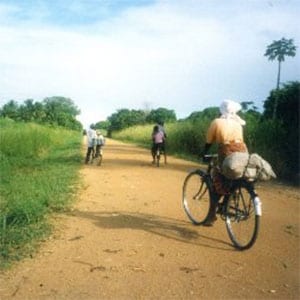Professor Tahseen Jafry, Director of Glasgow Caledonian University’s Centre for Climate Justice, gives her verdict on the outocmes from COP26:
I think there was a lot of hope, ambition and positivity coming into this COP. We knew there was a lot riding on it because of the global temperature rises.
On the surface, there seems to have been some positive outcomes. The decision to end and reverse deforestation by 2030, with countries including Brazil signing up, is to be applauded. Likewise, the EU and US agreeing to cut methane gas by 2040 is also to be welcomed, as are the 40 countries who have pledged to move away from coal, including major users such as Poland. It is hugely disappointing, however, that India, and others, will only scale down use rather than stop it altogether.
And there are bigger challenges too.
It was good to see a gender balance of people attending this COP but, what actually transpired, is that male voices seemed to be the dominant ones at the main conference sessions for the leaders and policy makers – in fact, 74% of those at the plenaries were men. This is where the big issues are heard and decisions are made. This set the tone for the conference overall and that was disappointing.
One of the biggest issues for the poorest nations at this COP is climate finance. It still remains to be seen what, if any, of the Paris commitment – the $100 billion pledge – will be taken forward. It has been stated that this is still outstanding and this is a huge disappointment for the least developed countries. It should have been delivered by 2020 and is now nowhere near what is needed. Under a 1.5-degree scenario, the cost of adaptation is $180billion annually from 2020 to 2030.
The pledges to cut emissions are not far reaching or ambitious enough either.
The data indicates the world is on track to heat up by 2.4 degrees by 2100. Therefore, we’ve far surpassed the 1.5-degree limit that was set at Paris. Global warming of 1.8 degrees is possible by 2030, but only if those emission-reduction targets are achieved faster and within the next nine years.
We have less than a decade left to tackle this crisis. The clock is ticking. That clock is a time bomb for the poorest – especially women and girls – who are on the front line of the climate crisis. Much more emphasis needs to be given to access and availability of climate finance to the poorest communities. In order to support livelihoods, health and wellbeing, radical change is required.
Women and girls suffer the most – both physically and mentally – and we have not heard enough about that during this COP. It’s been shocking that the desperate needs of those most affected by the climate emergency, especially those in developing nations, have not been at the heart of these negotiations. There was a nod to a global goal on adaptation and to double funding, as well as a push to scale up finance on dealing with loss and damage via the Santiago Network; the network set up by the UNFCCC to provide technical assistance for averting and minimising loss and damage in developing countries that are particularly vulnerable to the adverse effects of climate change. It remains to be seen what will actually transpire.
A more significant issue is the workplans and approaches to ensure the money actually gets to grassroots communities – rural and remote. Remember, these are the people that have contributed the least to climate change and yet are suffering the most. To tackle the climate emergency and deliver climate justice we need to look after everybody and leave no one behind. Sadly, few will have left COP26 feeling this has been achieved.

Be First to Comment